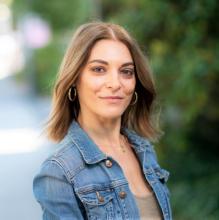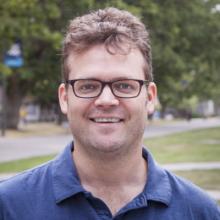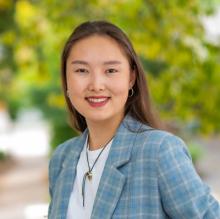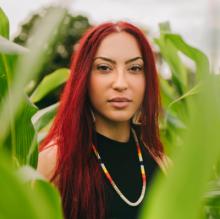My project aims to extend existing research by documenting novice educators’ felt-sense experiences and meaning-making of learning/teaching comprehensive sexual education; and suggesting how such insights can help progress comprehensive sex education.
Research Description
This PhD research explores how a body-based lens may advance comprehensive sexual health education pedagogy and practices. Comprehensive sex education holds significant possibilities for fostering individuals’ health via encouraging sexuality/gender equity, increasing bodily autonomy, and improving sexual decision-making and communication. However, evidence confirms there are long-standing challenges in the field that require further analysis. I build on recent literature highlighting the importance of better understanding educators’ ‘felt-sense’ experiences of comprehensive sexual health education – feelings, emotions and sensations produced, known and lived through the body (e.g., gut instincts, internalized stigma and feelings of (dis)connection). This knowledge has been theorized to help facilitate study of meaning-making of sex education, including fissures between comprehensive sex education pedagogy and experiences of sexual information. My project aims to extend existing research by: A) documenting novice educators’ felt-sense experiences and meaning-making of learning/teaching comprehensive sexual education; and B) suggesting how such insights can help progress comprehensive sex education.
What does being a Public Scholar mean to you?
A public scholar is someone who demonstrates a deeply held commitment to intellectual and social responsibility. Public scholarship involves creating and sharing knowledge(s) that resonates with the lived experiences of the people and populations with whom we work. To me, being a public scholar means I hold the relationships represented within the acknowledgements section of my PhD dissertation in the highest esteem.
In what ways do you think the PhD experience can be re-imagined with the Public Scholars Initiative?
The Public Scholars Initiative is a way to support a PhD experience that is grounded in thoughtful community engagement. The Initiative challenges me to enrich an expected or traditional academic trajectory. I certainly still hope to secure a tenure-track position, but I view my academic success in terms of the relationships I forge, the ethical commitments I uphold and the knowledge boundaries I push.
How do you envision connecting your PhD work with broader career possibilities?
My PhD research allows me the unique opportunity to do meaningful work at intersections of sexuality, bodies and education, as they pertain to research, theory, pedagogy and practice. My ideal career would allow me to work to my strengths in academia, public policy and sexual health education provision. I am honoured for the opportunity to be part of an initiative that challenges emerging scholars to create hinges between academic research and public scholarship.
How does your research engage with the larger community and social partners?
I am completing my research with Options for Sexual Health Association, who are the largest not-for-profit provider of sexual health services and education in Canada. This project uses qualitative and arts-informed research methods to engage research participants in the development of a body-based approaches to comprehensive sexual health education.
Why did you decide to pursue a graduate degree?
I started a PhD to help advance the ways we learn about sexuality, produce new knowledge about sexuality education and to continue to develop myself as a person. My research is both a political and personal project that inspires me to think and write and think so more. My research stems from my commitment to education, equity and advocacy, as well as my conviction that everyone has the right to learn about their sexual self.
Why did you choose to come to British Columbia and study at UBC?
I chose to study at UBC because it is a highly regarded international research university and I get to be part of one of the top 10 education faculties in the world. I am learning about intellectual leadership from world-renowned scholars in the Faculty of Education. It is also exciting to think and learn as a visitor on the beautiful campus of UBC, which is the territorial land of the Coast Salish peoples.
A public scholar is someone who demonstrates a deeply held commitment to intellectual and social responsibility. Public scholarship involves creating and sharing knowledge(s) that resonates with the lived experiences of the people and populations with whom we work.




